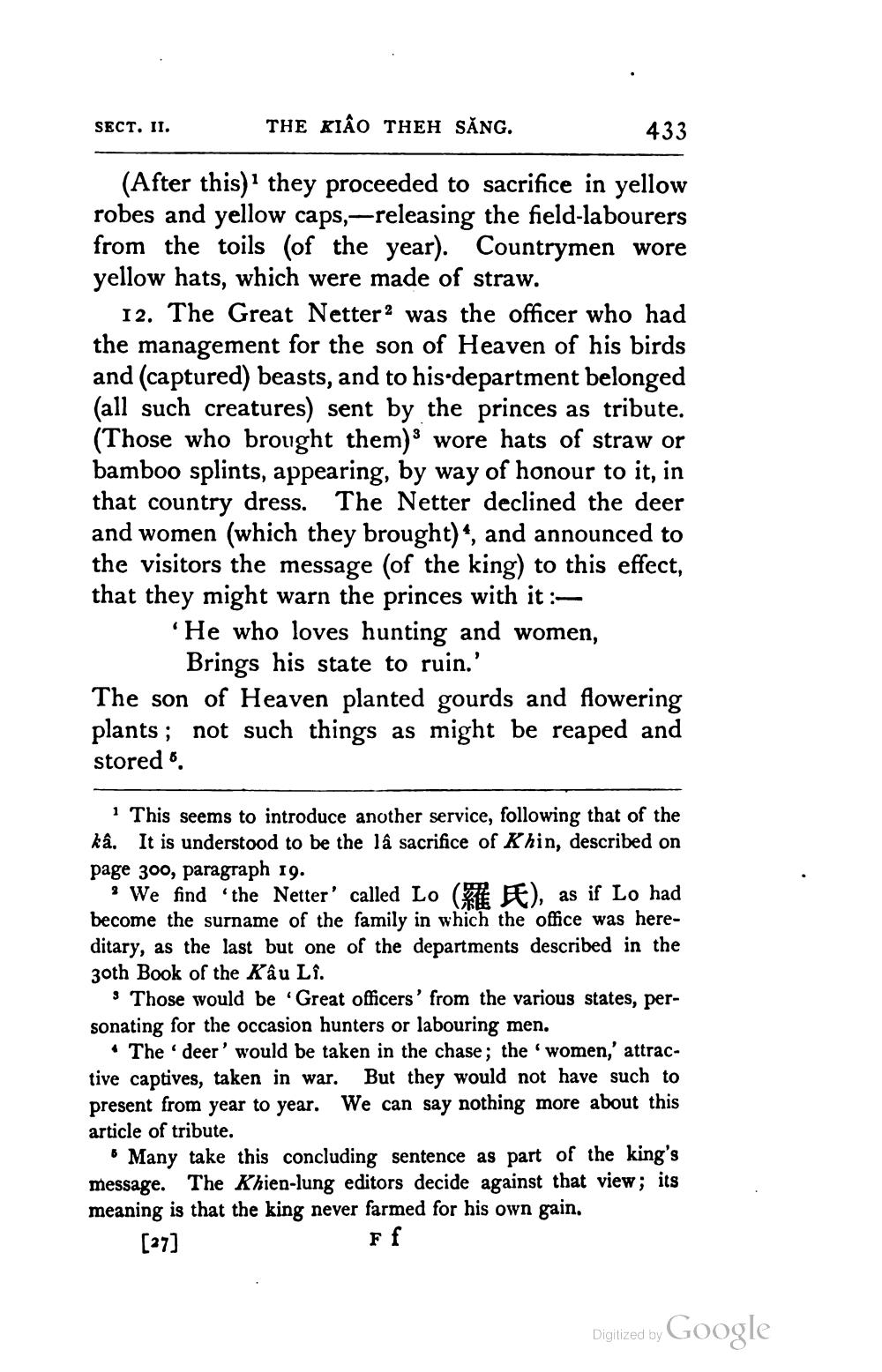________________
SECT. II.
| THE KIAO THEH SĂNG.
433
(After this)" they proceeded to sacrifice in yellow robes and yellow caps,-releasing the field-labourers from the toils (of the year). Countrymen wore yellow hats, which were made of straw.
12. The Great Netter? was the officer who had the management for the son of Heaven of his birds and (captured) beasts, and to his department belonged (all such creatures) sent by the princes as tribute. (Those who brought them): wore hats of straw or bamboo splints, appearing, by way of honour to it, in that country dress. The Netter declined the deer and women (which they brought)4, and announced to the visitors the message (of the king) to this effect, that they might warn the princes with it :
"He who loves hunting and women,
Brings his state to ruin.' The son of Heaven planted gourds and flowering plants ; not such things as might be reaped and stored 6.
1 This seems to introduce another service, following that of the ka. It is understood to be the la sacrifice of Khin, described on page 300, paragraph 19.
? We find the Netter' called Lo ( #), as if Lo had become the surname of the family in which the office was hereditary, as the last but one of the departments described in the 30th Book of the Kau Li.
Those would be Great officers' from the various states, personating for the occasion hunters or labouring men.
• The deer' would be taken in the chase; the women,' attractive captives, taken in war. But they would not have such to present from year to year. We can say nothing more about this article of tribute.
• Many take this concluding sentence as part of the king's message. The Khien-lung editors decide against that view; its meaning is that the king never farmed for his own gain. [27]
Ff
Digitized by Google




